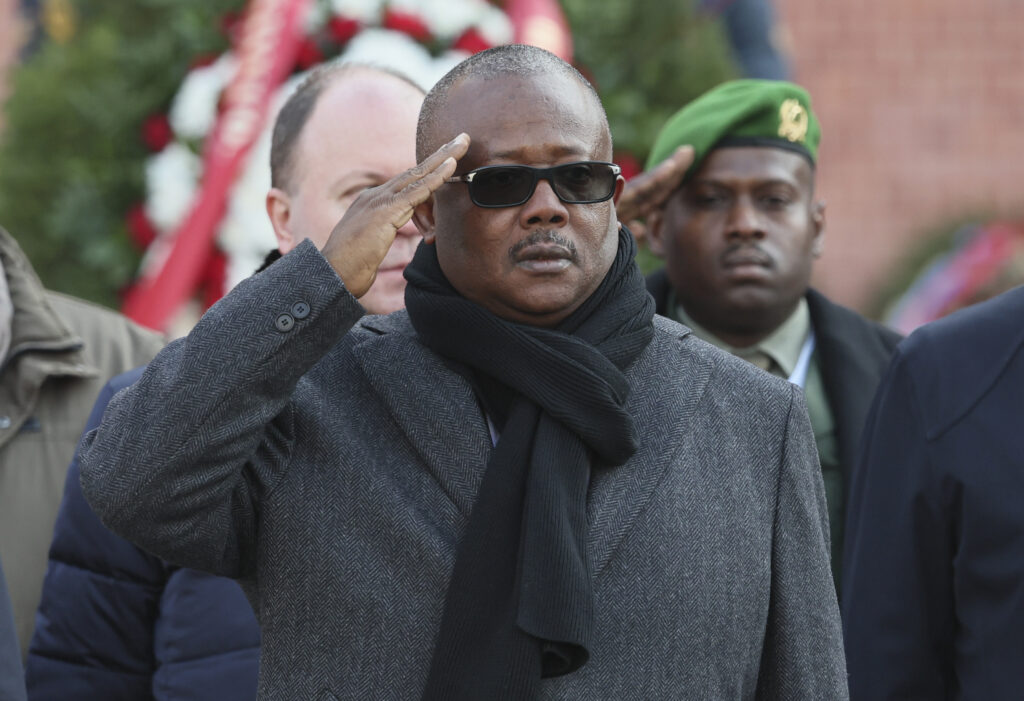Guinea-Bissau President Umaro Sissoco Embalo is confident he will easily win another term in office this year but faces claims he lacks legitimacy as his mandate has already expired.If Embalo remains in office until November, when the politically volatile nation is due to vote, he will be only the second leader since the introduction of a multiparty system to see out his term without being deposed or killed.Nicknamed “the general” by his supporters even though he left the army in the 1990s, the 52-year-old is a political scientist, specialising in defence and geostrategic affairs.Embalo promised he would only stand for one term but earlier this month pulled back on that, announcing another tilt at the top job “for the good of this country”.”I will be a candidate, there is no doubt about that, and I will win from the first round,” he told AFP.A former prime minister until 2018 under president Jose Mario Vaz, Embalo won in the second round of voting in December 2019 after a highly contested election.He declared himself president — as did his rival Domingos Simoes Pereira, also an ex-prime minister and head of the party that led the former Portuguese colony to independence in 1974.Embalo’s victory was confirmed by the supreme court and finally recognised by the West African regional bloc, ECOWAS, after a four-month political impasse.Since then, the president says there have been two coup attempts against him. Over four decades, Guinea-Bissau has seen four coups and several attempted coups.- ‘Consolidate his power’ -Three days after clashes in December 2023, which authorities said were down to coup plotters, Embalo dissolved parliament, at the time dominated by the opposition.The move was fiercely condemned by Pereira — then the parliament’s speaker — as a constitutional coup.Legislative elections due last November were postponed and have now been set, together with a presidential ballot, for November 23.The opposition PAI-Terra Ranka coalition led by Pereira says Embalo’s mandate ran out on February 27, five years to the day after he was sworn in.However, an opposition call for protests to “paralyse” the west African country on that day did not get off the ground in the capital, Bissau, amid tight security.An ECOWAS team, which had come to Guinea-Bissau in February to help find political consensus, was sent packing after Embalo ordered its members be expelled from the country.Embalo “is trying to extend his mandate as much as possible in order to consolidate his hold on power to ensure he will face a disorganised opposition in the elections,” Pedro Seabra, deputy director of the Center for International Studies in Lisbon, said.Embalo came to power portraying himself as an outsider and “has shown himself to be very adept at setting the different parties in Guinea-Bissau against each other”, Seabra added.- Compatriots urged to ‘contribute’ -Embalo is deputy head of the Madem G-15 movement, which he set up with dissident members of the African Party for the Independence of Guinea and Cape Verde (PAIGC) that dominated politics in the country until 2019.He was the West African representative for a Libyan investment fund and during the last election campaign was often seen wearing a red and white keffiyeh scarf.A father of three, Embalo, a Muslim from the ethnic Fulani community, is married to a Christian and speaks five languages.During the last presidential campaign, he urged all Bissau-Guineans, including the large diaspora, to “contribute to the development of this martyred country”.Born in the capital, he studied social and political science in Spain and Portugal and is a keen football fan, supporting the Belgian first division side, Standard Liege.
